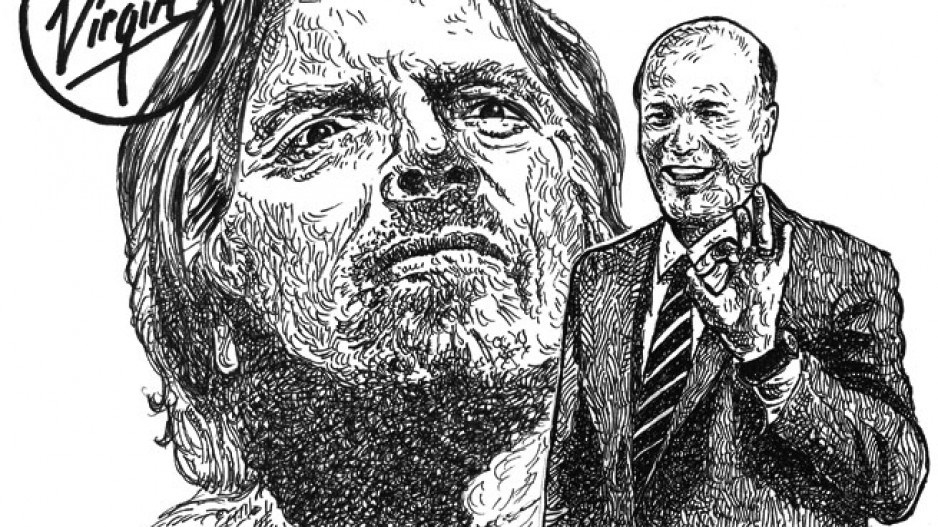The term "corporate alignment" is often slipped into conversations, speeches or proposals in an effort to establish credibility. The problem is that everyone has their own idea of what it means. How important is alignment? And how do we put a value on this often-misunderstood term?
My recent seminar at the 21st Annual Supply Chain Management Associations conference in Kelowna explored the importance of alignment by discussing interconnectivity between your company's brand, your personal brand and your market. To illustrate my point, I contrasted Dragons' Den star Kevin O'Leary and Virgin CEO Richard Branson – two well-known, successful businessmen with very different philosophies.
Let's jam a square peg into a round hole and imagine Kevin O'Leary running Virgin. It's an interesting thought because Richard and Kevin are worlds apart when it comes to belief systems and business practices. How different? Read the following quotations:
Richard: "The way you treat your employees is the way they will treat your customers."
Kevin: "I'm not trying to make friends, I'm trying to make money - if you want a friend, buy a dog."
Richard: "At Virgin our people come first because they are the core of our culture and the force behind the success."
Kevin: "Being an employee is a bad outcome - you want to avoid that."
Richard: "Never go into business purely to make money. If that's the motive, you're better off doing nothing."
Kevin: "I want to go to bed richer than when I woke up. The pursuit of wealth is a wonderful thing."
Richard: "I cannot remember a moment in my life when I have not felt the love of my family."
Kevin: "I am not planning on giving my kids any of my wealth."
Please note that these quotations do not represent any interaction between Branson and O'Leary. They came up during an online search using their names and terms including: "family," "values," "culture" and "money."
It's clear that Richard Branson's priority is a supportive corporate culture built on a foundation of carefully selected staff. Kevin O'Leary wants employees who are happy to show up, follow his directions and collect their salary. Neither approach is wrong – both can result in successful companies – they are just very different.
However, if Kevin O'Leary were brought in to run Virgin, it would never work. But why?
The key difference is corporate alignment. We know that the Virgin team share a belief system or they wouldn't be there in the first place. Their likemindedness enables them to operate as a unit, naturally identifying and learning how to best serve their ideal market, without Branson looking over their shoulders. So what happens when Kevin O'Leary brings his strictly vertical employer-employee philosophy and profits-above-all approach to the helm? He's proven himself more than capable of running a successful company, but his belief system would mean dramatic changes to the corporate culture, which would influence the client base. So what's the ultimate impact on Virgin's bottom line? Does it hold steady? Maybe. Decrease? Possibly. Increase? Not likely.
Think about your team. They aren't famous, but they have strong beliefs. Would they align themselves with an ambitious company initiative because of a few enthusiastic meetings? No. Their loyalty to the new direction – and their ultimate value to the company – depends on their belief system corresponding with yours. It's common for change to pull some team members closer while pushing others away. If one of your team members is uncomfortable with your company's new direction, it may be in everyone's best interests for them to step down.
So Branson and O'Leary experience substantial success despite their differing views. Then how important is alignment? It depends on your market. If you supply circuit boards, screws or A-V cables to manufacturers and never deal with consumers, it may not matter at all. On the other end of the scale, where would Virgin Atlantic Airways, the Apple iPhone, Nike or Google be if they hadn't spent considerable time and resources developing a guiding philosophy for their companies and used it to forge an emotional connection with their target market?
Where does your company sit?




